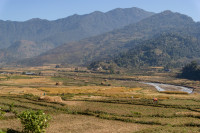Opinion
Impossible dream
Pain inflicted by the agitation and blockade does not seem to mean anything to Madhesi leaders
Jainendra Jeevan
Within 45 years, Nepal, a small nation that has always been a faithful friend of India’s, is choking under the third blockade imposed by the latter. The landlocked country which, for all practical purposes, is ‘India-locked’ is being punished for writing its constitution on its own, without yielding to the dictations of her giant neighbour, India. Compared to the previous two embargos, the restriction this time is more vicious and calculated. First, all the supplies were barred from entering Nepal. Then, only the most essential commodities such as petroleum products and cooking gas were restricted entry followed by occasional relaxation of border points. Meanwhile, the Birganj-Raxaul border point, the nearest and the only viable life-line of Kathmandu remains completely blocked. India’s move, therefore, is very strategic.
Modus operandi of the blockade
Madhesi agitators stage sit-ins at the ‘no-man’s land’ which is always cleared by joint and coordinated actions of border police of both the countries. This time, with the refusal of the Indian police to cooperate, the Nepali police are bound to clear the area on their own inorder to resume vehicular traffic . But whenever they try to do so the rioters flee to the Indian side, from where theyhurl stones at Nepali police personnel. Violating all norms of international relations, Indian border authorities turn a blind eye toward this. The protestors also receive food, shelter andprotection in Indian soil. The collusion is aimed to demonstrate to the international community that it is the agitating Nepalis who are obstructing supplies, and not the Indian government.
Why is India angered? Well, first and foremost, Nepali leaders ignored New Delhi’s prescription pertaining to the new constitution. Following the promulgation of the new constitution, New Delhi fears that its clout in Nepal’s political corridors that enables it to ‘micro-manage’ Nepal’s internal affairs will reduce now. Some analysts also link the blockade with New Delhi’s conventional areas of interests such as its desire to bring Nepal under its ‘security umbrella’ and its business and water-resources.
Some people, both in Delhi and Kathmandu, blame the over-activism of India’s Ministry of External Affairs ‘Babudom’ (bureaucracy) and/or the adventurism of Research and Analysis Wing (RAW)—India’s external intelligence agency—which is believed to be largely responsible for New Delhi’s Nepal policy, for the current mess. Some, especially the critics of the Indian Prime Minister Narendra Modi, also portray it as the Modi government’s foreign policy failure. Some left analysts andsecularists, also in both the countries, argue that the Bharatiya Janata party (BJP) government in Delhi is avenging Kathmandu for its refusal to revert to a ‘Hindu-state’. While the last assumption is rubbish, other theories are true, but only partially. To grasp the whole truth we have to dissect India’s‘hidden interests and ambitions’ regarding Nepal.
Unity of purpose
Sardar Patel, the powerful first deputy prime minister and home minister of independent India wanted to take over Nepal the way he did with other princedoms of British India. Thanks to Jawaharlal Nehru, the prime minister with a more liberal mindset, Patel’s ambitions were thwarted. In private, India’s top leaders and policy makers, till date, regret the slipped opportunity. Indira Gandhi, the most powerful prime minister of hertime, after successfully annexing tiny Sikkim, wanted to disintegrate the Tarai from Nepal to annex it into India.
RAW, a key player in the Sikkim operation was entrusted to draw the secret plan. Following her electoral defeat in 1977 and subsequent weakening of her political clout in the post-1977 era the plan was set aside. For, only a powerful government and/or an iron-willed leader can successfully execute such intrigues. And, New Delhi currently has such a government and a leader, after a long spell of weak coalition governments. Acts of disintegrating or annexing of another country’s territory are either carried out by winning a war or by instigating civil unrest in that country/area, for example in Ukraine. The apprehension of the Nepali people is, therefore, not unfounded. They believe that India’s blockade—the effects of which in Nepal are tantamount to that of war—and the agitation of theMadhesis—a community that feels alienated from Kathmandu but share ethnic fraternity, culture and geography with those across the border—are not coincidences. Rather, it is collusion.
Blockade-focused agitation
Yes, some demands of the Madhesi agitators are justified. But they are not merited enough to launch a violent agitation that has continued for over two months and has claimed nearly five dozen lives including that of police personnel. Their demands and aspirations can be addressed through amendments in the constitution, a process which has already started.While the territories of all other proposed provinces comprise of both the hills and the Tarai, Province 2 is the only statet hat has been exclusively demarcated on the ‘Tarai only’ basis. This special treatmentis meant to recognise and honour the ethno-regional identity and aspirations of the Madhesis. Yet, the Madhesi leaders, parties and activists are not only continuing their agitation but also radicalising it.
They continue to spread false information: the constitution is discriminatory against the Madhesis, and that it only guarantees rights for ‘hill-elites’ and so on. They are doing so to draw more recruits for riots and to fuel discontent. They are demanding, among others, to make the whole of Tarai plains a single, or at most two, autonomous Madhes province(s). And they are declining all calls from the government and major parties to come to the negotiating table. They are against give and take of all kind, whether in the larger interest of the nation or to accommodate the interests of other communities whose claims of territories and boundaries of states clash with theirs. For them, the pain their agitation and blockade have inflicted upon the Nepali people, including Madhesi commoners, does not seem to mean anything. It is my way (meet all our demands, even at the expense of others) or the highway (face blockade); there is no midway. Why compromise, when you have the backing of the powerful ‘Big Brother’, and when you can achieve all your demands at gun-point seems to be their ethos.




 8.12°C Kathmandu
8.12°C Kathmandu










